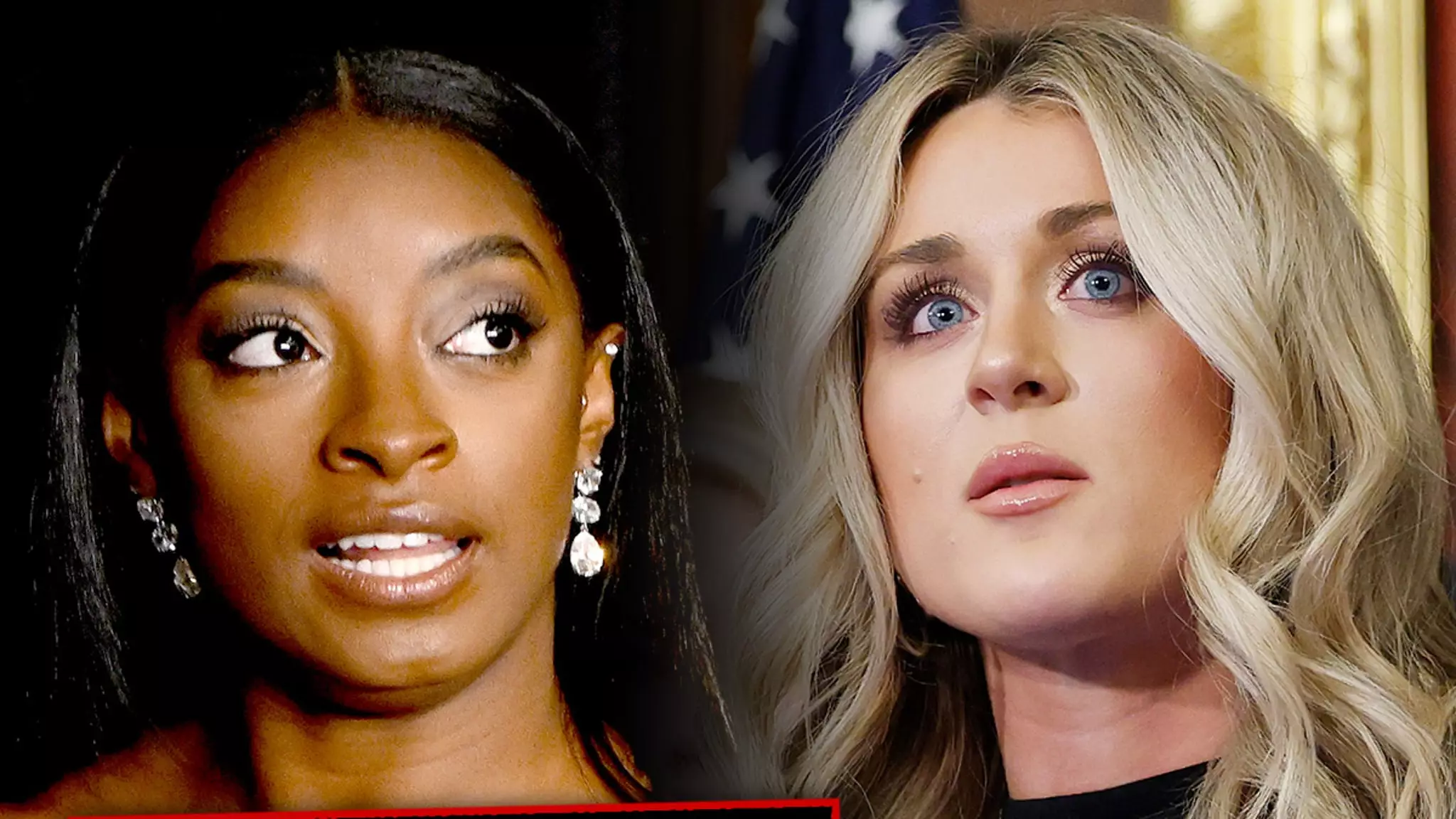In a digital age where social media serves as both a platform for celebration and contention, it comes as no surprise that the world of sports is not free from heated debates. One such incident unfolded last week when prominent figures in the sporting arena clashed over the sensitive issue of transgender athletes in women’s sports. The catalyst for this confrontation was Riley Gaines, a conservative activist whose comments about a transgender high school athlete fueled a fierce rebuttal from none other than Olympic legend Simone Biles.
Gaines’ social media activity followed the Minnesota State High School League’s decision to disable comments on a celebratory post after Champlin Park High School achieved a remarkable victory, attributed largely to the prowess of their trans pitcher. Her remarks, including the insinuation that a “star player is a boy,” encapsulated a broader narrative that often marginalizes the identities of transgender individuals, particularly in sports. In this context, Biles leaped in to defend not only her fellow athlete but also the integrity of sportsmanship itself.
Simone Biles: The Voice of Inclusivity
Biles, a seven-time Olympic gold medalist, is more than just an athlete; she embodies the struggle for inclusivity and representation in sports. Her powerful retort to Gaines—accusing her of being a “sore loser” and advocating for more inclusive sports—brought considerable attention to the plight of transgender athletes. The use of social media gave her a platform to not only counteract Gaines’ comments but also to connect them to larger themes of cooperation and growth within sports.
As Biles asserted, “One thing’s for sure is no one in sports is safe with you around,” she shifted the conversation from one of division to one of accountability and responsibility. Her message was clear: sports should not only be about competition but also about creating an environment where every athlete can thrive without fear of prejudice or exclusion. This perspective raises crucial questions regarding the role of sports organizations in facilitating inclusivity and whether they are adequately fulfilling that role.
Riley Gaines: Defiance in the Face of Criticism
In response to Biles’ allegations, Gaines did not retreat. Instead, she doubled down, proclaiming that it is not women’s responsibility to accommodate men in their spaces. With assertive statements declaring that “men don’t belong in women’s sports,” Gaines dug further into her argument, seeing it as a defense of women’s rights. Her comments reveal a prevailing belief among many in her camp that the presence of transgender women in female categories undermines the hard-fought progress made by female athletes.
However, this relentless insistence on exclusion raises a deeper philosophical question about what fair competition truly means. Is it fair for female athletes to face competitors whose physical advantages stem from biological factors? Yet, by the same token, how does society reconcile these issues with the fundamental rights of individuals to identify as they wish? The intersection of gender identity and athletic competition continues to provoke divergent viewpoints, covering a broad spectrum of opinions.
A Complex Discussion on Identity and Fairness
The Twitter altercation between Biles and Gaines is emblematic of a much more complex societal problem. More than just a sporting issue, it touches on themes of identity, fairness, and the rights of individuals. Biles’ acknowledgment of the abuse she faced at the hands of Larry Nassar brings an emotional weight to her arguments, suggesting the very essence of what it means to feel safe in environments traditionally dominated by men. It is a reminder that conversations about gender do not exist in a vacuum; they are tied to lived experiences and the painful histories of those who come forward to share their truth.
Both sides present compelling arguments, yet neither can claim absolute correctness without further examination. As allies of progress, we must ask ourselves how we can promote inclusivity while respecting the principles of fair competition. The sports arena is not merely a battleground for titles and trophies; it is a reflection of society’s broader struggles for equality and understanding.
In the grand narrative of this conflict, Biles stands as a champion for understanding and inclusivity, while Gaines represents a faction determined to hold traditional views over emergent ideologies. As dialogues continue to unfold, it’s evident that the world of sports is a microcosm of our societal debates around gender, representation, and fairness. The stage is set for ongoing discussions that challenge our perceptions and compel us to re-evaluate the values we hold dear.

